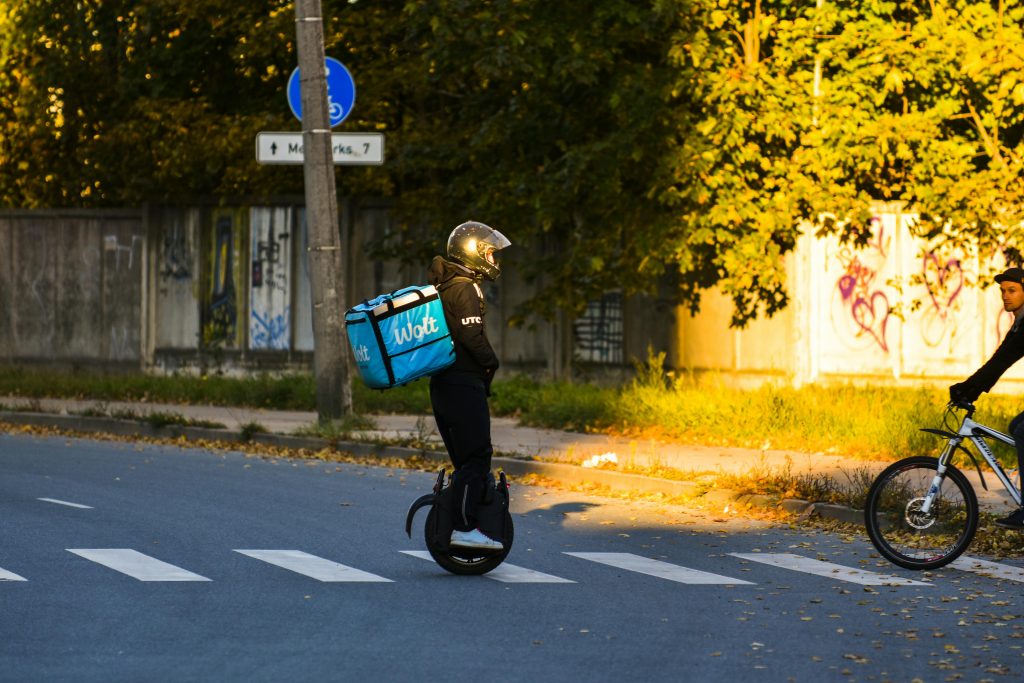February the 21st, 2024 – The number of Croatian platform workers who work for the likes of Wolt, Uber, Glovo and so on appears to be lower than previously expected, but the Labour Ministry has expressed that the current data isn’t representative of the real situation on the market.
As Poslovni Dnevnik/Josipa Ban writes, there are apparently 7,791 Croatian platform workers registered at this moment in time. All of them work through three platforms that cooperate with as many as 878 aggregators.
Data from the Ministry of Labour shows that the vast majority of Croatian platform workers, as many as 95 percent of them (7,468), earn their wages through employment contracts concluded with aggregators, who are actually intermediaries between workers and digital platforms.

Only 484 Croatian platform workers are employed through a trade or company, that is, as self-employed people. The rest of the cooperation in this sense refers to students, apprentices and those on work contracts.
All of this data, which provides an overview of the state of the domestic labour market created by the arrival of digital platforms, comes from the Register of Digital Work Platforms and Aggregators, which is part of the information system of the Unified Electronic Work Record (JEER system). The JEER was created so that the state could more easily monitor work through digital platforms after the boom.
However, the information presented above is far from complete. The Ministry of Labour has duly noted that there are four large digital work platforms operating in Croatia currently, but the fourth hasn’t yet been registered.
“The data of the fourth platform is ready to be entered into the system, but as the prerequisite for this is the registration of the platform itself, and that platform is currently solving the legal prerequisites for registration, the integration of all large digital work platforms with the JEER system is expected soon,” they stated from the ministry.
Exactly which platforms are listed in the Registry is more difficult than one might imagine to come across, but it is known that Uber, Bolt, Glovo and Wolt operate on the domestic market. It was also no possible to find out precisely how many working hours Croatian platform workers work on average, since the registration of the platforms is still ongoing. The ministry has revealed that all platforms operating here in Croatia need to harmonise all of their operations with the new legal provisions as of July the 1st this year.
Labour Ministry: This data isn’t an accurate representation of the real situation

For this reason, according to the ministry, the current data isn’t actually a true representation of the real situation, which is why they themselves haven’t communicated it. The actual number of Croatian platform workers, when the data is complete, will probably be considerably higher than this number, as will the number of aggregators.
Reality vs Perception

The official data on the number of Croatian platform workers diverges quite significantly from the assumptions and perception that was associated with platform work in Croatia, and in many cases still is. It was assumed that around 40,000 people work through various platforms, but it turns out that there are far fewer of them than we imagined initially – there slightly more than eight thousand (7,791 natural persons, as well as 484 self-employed individuals).
In addition to that, as the ministry noted, some natural persons have concluded work contracts with several aggregators, and some self-employed people cooperate with several platforms. This means that the current number of Croatian platform workers is actually even smaller.
“Given the currently available figures from the JEER system, and in comparison with other European countries, we believe that this isn’t a significant number of people engaged in a new form of employment and work. Real assessments will only be able to be made when registration is carried out involving the data of all digital work platforms”, the ministry stated.
They added that they believe that the legal solution which came into force at the beginning of the year, which includes the monitoring of platform work through an information system created by APIS IT for 2.5 million euros, “will contribute to ensuring dignified working conditions for Croatian platform workers while at the same time supporting the sustainable growth of these digital work platforms”.
Across the EU, according to data from the European Commission, there are 500 digital work platforms that generate revenues of 20 billion euros and employ more than 28 million people across the bloc. About 55 percent of those platform workers earn less than the legally prescribed minimum wage per hour. It isn’t yet known how much platform workers earn per hour in Croatia.











